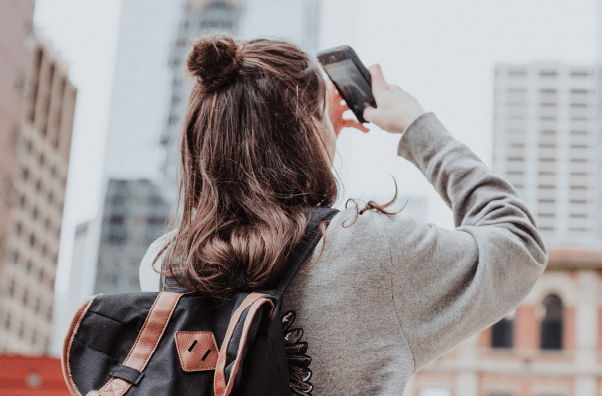Table of contents
Social media has become a part of every aspect of our daily lives. From catching up with (or showing off to) friends to shopping and entertainment, social media has likely changed, or at least impacted, how you go about many activities.
Travel and travel planning are no exception.
This is why many marketers tout social media as a great way for hotels to reach their target audience and drive business. But finding the best way to leverage social channels for your hotel can be tricky. And if you haven’t had a lot of success with it so far, you may wonder if it’s even worth it.
Let’s look at some recent stats and trends to see how social media impacts traveler decisions and what that could mean for your hotel.
The value of building a social media presence for your hotel
Statista found that in July 2021, Facebook had 2.8 billion members worldwide. YouTube was next in line with 2.2 billion users while 1.3 billion people log on to Instagram regularly.
Given those numbers, it’s clear that no matter what niche your property is in, your ideal guests are on social media. That’s great news because these platforms offer you the unique chance to engage directly with your target market via likes, comments and direct messages. Look at print or TV ads, or even your website, and you’ll see this isn’t possible in the same way anywhere else.
This gives you the opportunity to build a following on one or several of these channels, to create a recognisable brand presence and be at the front of people’s minds when they plan a holiday. That, in turn, can make it easier to score extra direct bookings, gain more independence from OTAs, and boost your topline.
With this goal in mind, many hotels happily created their profiles. But in the past, a lot of them used social media only as a digital phone book with a few photos and contact details. They occasionally shared updates on the latest promotions, but their content overall didn’t feel especially engaging. Today however, more hotels are starting to see the value of being both present and active on their channels and the trend of leveraging social media as the powerful marketing tool it is, is growing rapidly.
A survey by GuestCentric confirms this. In January 2021, they surveyed hoteliers and 48.75% ranked social media as the second most important sales and marketing priority over the next twelve months. This marks a 4.55% increase from the 44.2% who shared this view back in December 2020.
Social media's impact on traveller decisions:
According to Uswitch, UK adults spend close to two hours on socials every day. GWI found similar or even higher daily averages in other countries. Looking at those numbers, it’s hardly a surprise that social media has a strong impact on day-to-day decision making, including our travel choices.
The growing importance of micro moments in travel planning
Data shows that the hoteliers keen on investing more effort in their social media strategy are on the right track. Statista found that especially younger generations get inspired by platforms like Facebook and Instagram when it comes to travel.
This reflects the rise of the scattered guest journey. Today, people don’t go through a linear travel planning and booking process anymore. Instead, they get inspired and collect ideas at random times throughout the day, over a longer period, until concrete trip ideas form and they begin booking. The bite-sized pieces of social media content are ideal for this. They allow travellers to find new destinations and get a feel for them at their convenience and pace. Google calls these short bouts of research and discovery: 'Micro Moments'
A strong presence on social media can help hotels use these Micro Moments to get in front of their target market more often when they’re looking for new inspiration. This is great news for you since you now have more chances of reaching people while they plan their holiday. The key is to ensure your content is relevant, informative, and/or inspiring. Use various formats including images, stories, reels, posts, texts and videos to share your message and capture the attention of a wide audience.
Social media as a power-up for your guest relations
On top of helping you get in front of future travellers, social media is also a good way to interact with them and even to chat with in-house guests. Make yourself available on your channels, encourage questions about the hotel, deals, or booking options and provide direct, personalized answers. This increases engagement levels and can help you create a more customized and streamlined booking journey.
In particular, responding to queries quickly can boost your direct bookings significantly. Today, most of us expect immediate answers to our questions. People researching travel options are no exception. Often, the first hotel that provides all the details they need to make an informed booking decision, gets their business. Start using your social media as a direct communication tool and this will be your property more often.
Once travellers arrive at your hotel, encourage them to interact with you via social media. Ask for their opinion of the room or their check-in experience, for example. This gives you the chance to fix any issues quickly and offer personalized suggestions on how to make their stay even more fun.
Feedback and reviews via social media
Social media reviews are another key element that can help you better promote your business. Good reviews, be it ratings or comments, play a major role in building trust among people researching a future trip.
TripAdvisor, one of the world’s most widely-used review sites, found that 96% of its users ‘consider reading reviews important when planning trips and booking hotels.’ 83% of them will ‘usually’ or ‘always’ check reviews before deciding to book a hotel while over 50% would not want to book a hotel without any guest feedback.
A study by TrustYou further highlights how important good online reviews are for your hotel. They found that travellers were 3.9 times more likely to choose hotels with higher reviews over lower-rated properties when the prices were the same. When asked explicitly, 76% of respondents said they were willing to pay more for a hotel with higher review scores. This shows it’s absolutely worth investing in generating reviews on your social channels since they will help you get more and higher value bookings in the future.
If you want to take things even further, respond to your reviews regularly. Research by Medallia recently found that properties that responded to over half of their social media reviews were able to ‘increase their occupancy rates by 6.4%, more than twice the rate of properties that largely ignored social media reviews.’
The power of social media ads: building awareness and driving direct bookings
You have two options when using social media to promote your hotel. One: you can leave it all up to the algorithm and organic exposure. Or two, you can help matters along with ads. Social media ads can be a powerful and effective way to increase your reach, get more eyeballs on your offers, increase brand awareness and build your brand identity.
The key is to set clear goals for what you want to achieve and create ads which reflect that. If your goal is to build awareness and strengthen your brand identity, you need engaging ad content that showcases your USPs or shares truly noteworthy news about your property, for example, the completion of a full renovation. On the other hand, if you want to drive bookings, your ads must be highly targeted to a very specific target audience. Clear, time-sensitive deals add an extra sense of urgency and can help increase conversions.
Regardless of which goal you have with social media ads, monitor your results to see if your ad campaign is paying off. Are you getting more followers? Are more people engaging with your content? How many bookings is your special offer generating? Pick a set of relevant metrics and keep an eye on them to see if you need to tweak your ads for better performance.
Measuring your social media's ROI
Knowing the exact ROI of your social media activities can be tricky as it depends a lot on how you define it. Some results like brand awareness and sentiment among your target audience are hard to measure since you can’t quantify them or even put a dollar amount on them.
For a hard ROI, you’ll need clear objectives with a measurable value. These could include:
- Increase website traffic by a certain percentage
Your website conversion rate helps determine approximately how many more direct bookings you got from your additional traffic. Use your average booking value to determine revenue generated. - Get a specific number of additional newsletter sign-ups
How many of your newsletter subscribers book a room? Again, use this conversion rate and your average guest spend to determine the value of each new subscriber. - Drive a certain number of direct bookings
Targeted direct booking campaigns with special offers are easiest to track. Simply check how often you sold the deal. Otherwise, share a code in your posts or stories which people can use to book. This helps you track which reservations came via your social channel.
It’s important to keep an eye on these metrics and your social channel’s statistics (e.g. engagement rate, follower growth rate) to understand if your investment of time and money is justified.
A survey by eviivo may make it seem like all the hard work barely pays off. They recently found that social media results in only 3.3% of website traffic and only 0.75% of online bookings. However, those figures look only at site visits and reservations that come directly from social media. They don’t take into consideration the business you get from people who may have bookmarked your hotel a while back or kept you in mind after seeing your posts in their feed regularly.
All this to say: always look at the bigger picture. Check your account and website metrics to see what’s working for you and what isn’t. Tweak your approach as needed and you’ll be on the way to making the most of social media and micro moments in travel planning.

2026 Hospitality Industry Outlook
Download now
Table of contents
Hospitality hot takes straight to your inbox



.webp)
